Regal Slim is a popular weight loss dietary supplement in the United States, commonly used by adults to aid in achieving their weight loss goals. It is marketed as a product that can help individuals lose weight more easily. However, it is important to note that the effectiveness and safety of weight loss supplements like Regal Slim have not been extensively studied.
Before starting any weight loss supplement, it is crucial for individuals to discuss the potential benefits and risks with their healthcare provider. Understanding the ingredients, possible side effects, and overall impact on one’s health is essential for making an informed decision about using products like Regal Slim.

Key Takeaways
- Regal Slim is a weight loss dietary supplement commonly used by adults in the United States.
- The effectiveness and safety of weight loss supplements like Regal Slim have not been extensively studied.
- It is important to consult with a healthcare provider before starting any weight loss supplement.
- Understanding the ingredients and potential side effects is crucial for making an informed decision.
- Prioritizing sustainable lifestyle changes, such as a healthy diet and regular physical activity, is key for long-term weight loss.
The Importance of Lifestyle Changes for Weight Loss
Health experts agree that making lifestyle changes is crucial for achieving long-term weight loss. While weight loss supplements may promise quick results, sustainable and healthy weight loss is best achieved through a combination of a healthy dietary pattern, reducing caloric intake, and engaging in regular physical activity. These lifestyle changes not only promote weight loss but also improve overall health and well-being.
A healthy dietary pattern is characterized by consuming a variety of nutrient-dense foods, such as fruits, vegetables, whole grains, lean proteins, and healthy fats. This approach provides the body with essential vitamins, minerals, and antioxidants while avoiding excessive intake of unhealthy fats, added sugars, and processed foods. Aim to create a balanced and enjoyable eating plan that can be maintained in the long term.
In addition to a healthy diet, reducing caloric intake is essential for weight loss. To create a calorie deficit, it is important to be mindful of portion sizes and choose nutrient-dense, lower-calorie options. Incorporating strategies such as mindful eating, listening to hunger cues, and practicing portion control can help individuals achieve and maintain a healthy weight.
Physical activity is another key component of a successful weight loss journey. Regular exercise not only burns calories but also boosts metabolism, improves cardiovascular health, and enhances mood. Aim for a combination of cardiovascular exercises, strength training, and flexibility exercises to achieve optimal results. The key is to find activities you enjoy and can incorporate into your daily routine.
In conclusion, lifestyle changes, including following a healthy dietary pattern, reducing caloric intake, and engaging in regular physical activity, are essential for long-term weight loss. While weight loss supplements may offer a quick fix, prioritizing sustainable changes is the key to achieving and maintaining a healthy weight. Consult with a healthcare professional to develop a personalized plan that suits your needs and goals.
Regulation of Weight-Loss Dietary Supplements
Weight-loss dietary supplements, including products like Regal Slim, are regulated by the U.S. Food and Drug Administration (FDA). However, unlike drugs, dietary supplements do not require premarket review or approval by the FDA. Manufacturers are responsible for ensuring the safety and truthfulness of their products. If a supplement is found to be unsafe or making false claims, the FDA can take enforcement action to remove it from the market. Consumers should be cautious and consult their healthcare provider before using weight-loss supplements.
The FDA’s regulation of weight-loss dietary supplements is aimed at protecting the public from potentially harmful products and misleading marketing claims. However, the lack of premarket review means that the effectiveness and safety of these supplements may not be well-established. It is important to note that just because a supplement is on the market does not guarantee its safety or effectiveness.
The FDA has established a number of regulations to ensure the safety of weight-loss dietary supplements. These regulations include requirements for manufacturing practices, labeling, and good manufacturing practices. Manufacturers must adhere to these regulations to ensure that their products are safe and accurately labeled. The FDA also has the authority to take enforcement actions against manufacturers who violate these regulations.
“The FDA is committed to protecting the public from unsafe or misleading weight-loss dietary supplements. We encourage consumers to be cautious and consult their healthcare provider before using these products, as their safety and effectiveness may not be well-established.”
In conclusion, the regulation of weight-loss dietary supplements by the FDA plays an important role in ensuring consumer safety. However, it is important for individuals to exercise caution and consult with their healthcare provider before using these products. The FDA’s enforcement actions serve as a reminder that not all weight-loss supplements are safe and effective, and further research is needed to fully understand their effects.
Common Ingredients in Weight-Loss Dietary Supplements
Weight-loss dietary supplements, including Regal Slim, often contain a variety of ingredients that are believed to contribute to their weight-loss claims. Some of the common ingredients found in these supplements include:
- Botanicals: Many weight-loss supplements feature botanical extracts, such as green tea extract, Garcinia Cambogia, or hoodia, which are believed to have appetite-suppressing or metabolism-boosting properties.
- Dietary fiber: Fiber is often added to weight-loss supplements because it helps promote feelings of fullness and can aid in maintaining a healthy digestive system.
- Caffeine: Caffeine is a popular ingredient in weight-loss supplements due to its potential to boost metabolism and increase energy levels.
- Minerals: Some weight-loss supplements include minerals like chromium, zinc, or magnesium, which are believed to support metabolism and overall weight management.
However, it is important to note that the evidence supporting the effectiveness and safety of these ingredients is limited or inconclusive. While some studies suggest that certain ingredients may have modest weight-loss effects, the overall impact may vary among individuals. It is crucial for consumers to be aware of the ingredients in any weight-loss supplement they consider using and to consult with their healthcare provider before starting.
“Weight-loss dietary supplements often make bold claims about their ability to help individuals shed pounds and achieve their desired body weight. However, it is essential to approach these claims with caution and skepticism.”
Weight-loss is a complex process influenced by various factors, including diet, physical activity, and genetics. While supplements may play a role in weight management for some individuals, they should not be seen as a substitute for adopting a healthy lifestyle that includes a balanced diet and regular exercise.
Ketosis Side Effects: What to Expect on a Low Carb Diet
Ketosis is a metabolic state that occurs when the body is deprived of carbohydrates and begins to burn fat for fuel instead. While following a low carb diet can lead to successful weight loss for many individuals, it’s important to be aware of the potential side effects that can accompany ketosis.
The most common side effect of ketosis is the “low carb flu.” This temporary condition can cause fatigue, headaches, irritability, and difficulty concentrating. It occurs as the body adjusts to using ketones for energy instead of glucose. Fortunately, these symptoms typically subside within a few days to a couple of weeks as the body adapts to the new metabolic state.
Another side effect of ketosis is bad breath, often described as “fruity” or “acetone-like.” This is caused by the production of ketones, particularly acetone, which can be released through the breath. Practicing good oral hygiene, including regular brushing and flossing, can help minimize this side effect.
Some individuals may experience digestive problems, such as constipation or diarrhea, while in ketosis. This can be attributed to a decrease in fiber intake and changes in gut bacteria. Increasing fiber-rich foods and staying well-hydrated can help alleviate these issues. Additionally, some individuals may notice an elevated heart rate during ketosis. This is a normal response to the increase in adrenaline and other stress hormones that occurs as the body adapts to burning fat for fuel.
| Side Effects of Ketosis | Ways to Minimize |
|---|---|
| Low carb flu (fatigue, headaches, irritability) | Stay hydrated, consume enough electrolytes |
| Bad breath | Practice good oral hygiene |
| Digestive problems (constipation, diarrhea) | Increase fiber intake, stay hydrated |
| Elevated heart rate | Allow time for adaptation, engage in moderate exercise |
While these side effects may be uncomfortable, it’s important to remember that they are typically temporary and subside as the body adjusts to ketosis. If you have any concerns or experience severe or prolonged symptoms, it’s always best to consult with a healthcare professional. They can provide guidance and ensure that the ketogenic diet is suitable for your individual needs and health status.
“Ketosis can have some side effects, such as the low carb flu, bad breath, digestive problems, and an elevated heart rate. These symptoms are usually temporary and can be managed by staying hydrated, practicing good oral hygiene, increasing fiber intake, and allowing time for adaptation. If you have any concerns, consult with a healthcare professional.”
How to Minimize Side Effects of Ketosis
When following a ketogenic diet, it’s important to be aware of potential side effects and take steps to minimize any discomfort. Here are some strategies to help you manage the side effects of ketosis and make your journey smoother:
1. Drink Plenty of Water
Staying hydrated is crucial when you’re in ketosis. The keto diet can cause increased water loss due to reduced carbohydrate intake, so it’s important to drink enough water throughout the day. Aim to drink at least eight glasses of water per day, and increase your intake if you feel thirsty or notice signs of dehydration.
2. Increase Mineral Intake
The keto diet can also deplete the body of important minerals like magnesium and potassium. To replenish these nutrients, include mineral-rich foods in your diet. Foods such as avocados, leafy greens, nuts, and seeds are excellent sources of magnesium and potassium. You may also consider taking a mineral supplement, but be sure to consult with your healthcare provider before adding any new supplements to your routine.
3. Include Fiber-Rich Foods
Constipation is a common side effect of the keto diet. To help prevent this, include fiber-rich foods in your meals. Foods like vegetables, chia seeds, flaxseeds, and psyllium husk can provide a good amount of dietary fiber. Aim for at least 25-30 grams of fiber per day to promote healthy digestion.
4. Engage in Moderate Exercise
Moderate exercise can help alleviate some of the side effects of ketosis. Physical activity promotes blood circulation, aids digestion, and supports overall well-being. Engage in activities such as walking, swimming, or cycling for at least 30 minutes a day. However, listen to your body and adjust your exercise routine according to your energy levels and personal fitness goals.
By following these steps, you can minimize the side effects of ketosis and have a more enjoyable experience on the ketogenic diet. Remember to listen to your body, stay well-hydrated, and maintain a balanced diet to support your overall health and well-being.
Who Should Use a Ketogenic Diet with Caution?
While a ketogenic diet may offer various benefits, there are certain medical conditions that require caution when following this diet. Individuals with diabetes, pancreatitis, liver failure, or carnitine deficiency should consult with their healthcare provider before starting a ketogenic diet.
Diabetes: People with diabetes may experience significant fluctuations in blood sugar levels when following a ketogenic diet. It is crucial for individuals with diabetes to work closely with their healthcare team to monitor and adjust their medication and insulin doses accordingly.
Pancreatitis: Ketogenic diets, which are high in fat, can increase the risk of developing pancreatitis or worsening existing pancreatitis. Individuals with pancreatitis should be cautious and seek medical advice before adopting a ketogenic diet.
Liver Failure: Ketogenic diets can place additional stress on the liver due to the increased fat metabolism. People with liver failure or impaired liver function should avoid or closely monitor their intake of high-fat diets, including the ketogenic diet.
Carnitine Deficiency: Carnitine is a compound that plays a crucial role in energy metabolism. Individuals with carnitine deficiency may have difficulty metabolizing fats efficiently, making it challenging to follow a ketogenic diet. It is essential for individuals with this deficiency to work with their healthcare provider to determine if a ketogenic diet is appropriate for them.
Potential Risks and Considerations
It is important to note that while a ketogenic diet may be beneficial for some individuals, it is not suitable for everyone. People with the medical conditions mentioned above should approach this diet with caution and under the guidance of their healthcare provider. The ketogenic diet may require modifications or alternative approaches to ensure safety and effectiveness.
Individuals should also be aware of potential side effects and monitor their health closely while following a ketogenic diet. These side effects may include nutrient deficiencies, constipation, kidney stones, and an increased risk of heart disease.
Ultimately, the decision to pursue a ketogenic diet should be made in consultation with a healthcare provider who can assess an individual’s medical history and provide personalized guidance based on their specific needs and circumstances.
Conclusion
Regal Slim Review 2024 – Side Effects & Ingredients
After evaluating the information available, it is clear that Regal Slim, a weight loss dietary supplement, is marketed as a solution to achieve weight loss goals. However, it is important to note that the effectiveness and safety of such supplements, including Regal Slim, are not well-established.
Instead of relying solely on supplements, it is advisable to focus on sustainable lifestyle changes for long-term weight loss. This includes following a healthy diet and engaging in regular physical activity. By prioritizing these changes, individuals are more likely to achieve lasting results.
Furthermore, for those considering a ketogenic diet, it is crucial to be aware of potential side effects and consult with a healthcare provider before starting. Some side effects of ketosis may include symptoms similar to the flu, bad breath, digestive problems, leg cramps, and an elevated heart rate. However, these side effects are usually temporary and can be managed through proper hydration, increased mineral intake, consuming fiber-rich foods, and engaging in moderate exercise.
In conclusion, while Regal Slim may be enticing, it is important to approach weight loss with caution and prioritize lifestyle changes over relying solely on supplements. Always consult with a healthcare provider for personalized advice and guidance in your weight loss journey.
FAQ
Is Regal Slim an effective weight loss supplement?
The effectiveness of weight loss supplements like Regal Slim has not been well-studied. It is important to discuss the potential benefits and risks with your healthcare provider before starting any supplements.
What lifestyle changes are important for weight loss?
Following a healthy dietary pattern, reducing caloric intake, and engaging in physical activity are the foundation for achieving long-term weight loss.
How are weight-loss dietary supplements regulated?
Weight-loss dietary supplements, including products like Regal Slim, are regulated by the U.S. Food and Drug Administration (FDA). However, they do not require premarket review or approval by the FDA.
What are the common ingredients in weight-loss dietary supplements?
Some common ingredients include botanicals, dietary fiber, caffeine, and minerals. However, the evidence for the efficacy and safety of these ingredients is limited or inconclusive.
What are the potential side effects of ketosis?
Ketosis, induced by a ketogenic diet, can have side effects such as flu-like symptoms, bad breath, digestive problems, leg cramps, and increased heart rate. These side effects are usually temporary.
How can I minimize the side effects of ketosis?
To minimize the side effects, it is important to stay hydrated, consume enough minerals like magnesium and potassium, eat fiber-rich foods, and engage in moderate exercise.
Who should use a ketogenic diet with caution?
Individuals with medical conditions such as diabetes, pancreatitis, liver failure, and carnitine deficiency should consult with their healthcare provider before starting a ketogenic diet.
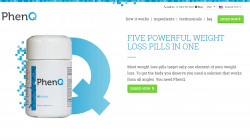
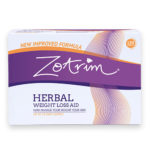
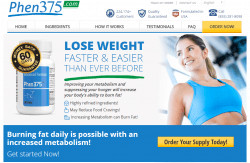
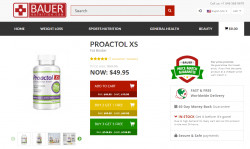

![Pruvit KETO OS Review [year] - Side Effects & Ingredients Pruvit KETO OS Review ([year]) - Side Effects & Ingredients](https://www.miriamwellness.com/wp-content/uploads/2023/11/Pruvit-KETO-OS-Review-2023-Side-Effects-Ingredients-150x150.jpg)
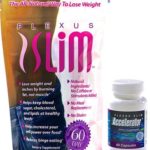
![Saxenda Review [year] - Side Effects & Ingredients Saxenda Review ([year]) - Side Effects & Ingredients](https://www.miriamwellness.com/wp-content/uploads/2023/11/Saxenda-Review-2023-Side-Effects-Ingredients-150x150.jpg)